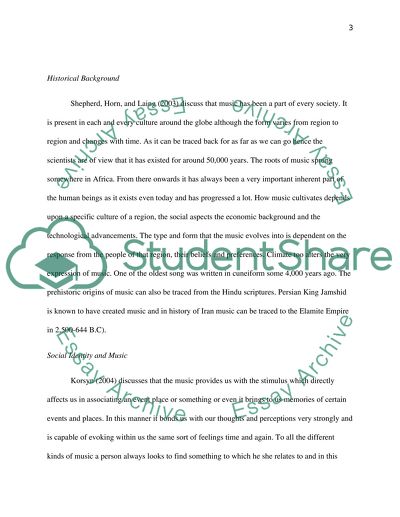Cite this document
(“Music and Social Identity Essay Example | Topics and Well Written Essays - 3250 words”, n.d.)
Retrieved from https://studentshare.org/sociology/1514168-music-and-social-identity
Retrieved from https://studentshare.org/sociology/1514168-music-and-social-identity
(Music and Social Identity Essay Example | Topics and Well Written Essays - 3250 Words)
https://studentshare.org/sociology/1514168-music-and-social-identity.
https://studentshare.org/sociology/1514168-music-and-social-identity.
“Music and Social Identity Essay Example | Topics and Well Written Essays - 3250 Words”, n.d. https://studentshare.org/sociology/1514168-music-and-social-identity.


